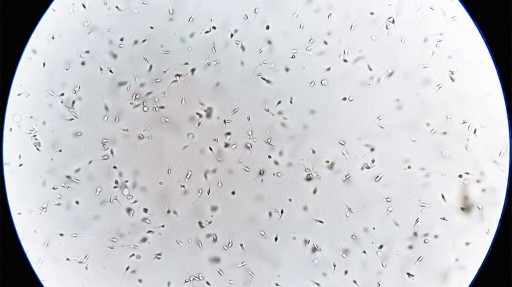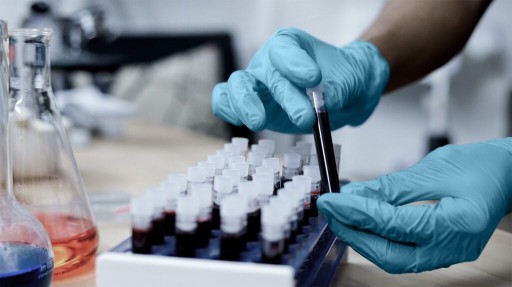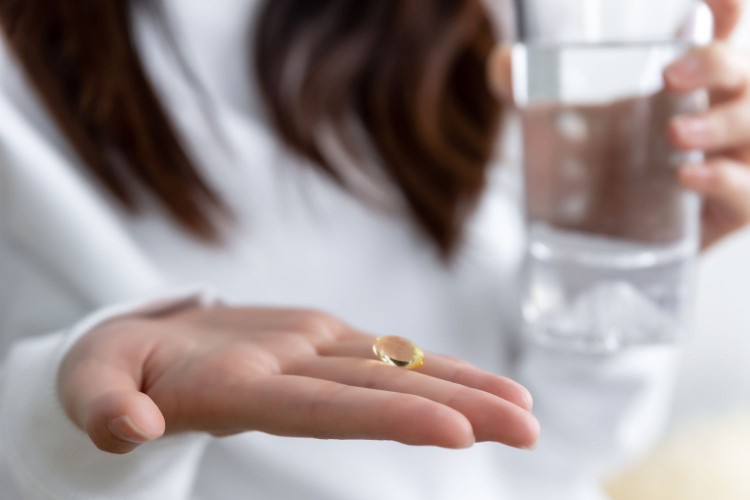
Semen has its own microbiome, and bacterial imbalances may impact sperm count and quality, according to a new study.
The researchers found unusually high levels of the bacteria Lactobacillus iners in males with low sperm motility.
The link between the health of the semen microbiome and gut microbiome remains unclear.
Experts say healthy lifestyle choices that promote a healthy gut could also support the health of the semen microbiome.
Globally, there is a reportedin male sperm count or the number of viable sperm within semen.
Some research points toward pollution as a factor contributing to male infertility, but this does not explain why an estimated 30% of semen is considered abnormal.
A new reproductive study of semen examined the impact of the health of the semen microbiome on sperm motility, which is the sperm’s ability to swim successfully through the female reproductive system to reach and potentially fertilize an ovum or egg.
The study finds that high levels of the bacteria Lactobacillus iners (L. iners) are associated with low sperm motility.
This study represents the first time a distinct semen microbiome has been suggested and investigated, and the first in which L. iners has been linked to a lowering of sperm motility.
The study is published in .
Balance of bacteria in semen microbiome affects sperm health
Along with “sperm helpers,” such as enzymes, fructose, and citric acid, there is a community of bacteria within semen.
In addition to L. iners, the most prominent bacteria found in semen include:
Enterococcus faecalis
Corynebacterium tuberculostearicum
Staphylococcus epidermidis
Finegoldia magna
For the study, the semen of 73 males seeking treatment for reproduction issues or vasectomies was analyzed.
The researchers found that 27 males with reproduction issues all exhibited higher amounts of L. iners compared to the 46 males seeking vasectomies who had already successfully reproduced and who had healthy semen.
The males with abnormal semen also had comparatively higher levels of the bacteria Pseudomonas stutzeri and Pseudomonas fluorescens. They had lower levels of Pseudomonas putida than those with normal semen.
How does bacteria impact human infertility?
The study’s first author, Dr. Vadim Osadchiy, an academic urologist specializing in men’s health and infertility, explained how the L. iners bacteria present in males and females may affect infertility:
In females, “this microbe can act as a symbiotic organism, meaning it helps maintain the healthy vaginal microbiome and prevents bad players from taking over,” Dr. Osadchiy said.
However,suggest that, at times, the bacteria may “predispose a person to developing bacterial vaginosis or even sexually transmitted infections,” he added.
Dr. Osadchiy noted the L. iners bacteria may also impact success rates for people undergoing fertility treatments.
“There issuggesting worse assisted reproductive technology outcomes when this microbe is found in higher abundance in the vaginal microbiome,” he said.
“This microbe has never really been studied within the context of male factor fertility, or really within the context of men’s health.”
Is there a link between the semen microbiome and gut microbiome?
The relationship, if any, between the lesser-known semen microbiome and the gut microbiome is unclear, but experts have a few theories.
“I think the farther away you get from the reproductive tract, anatomically speaking, the more tenuous the relationship becomes between the semen microbiome and the various other microbiomes in our bodies,” Dr. Osadchiy suggested.
“We know there is an intimate relationship between the urinary and semen microbiome as the reproductive and urinary tract are interconnected [although] the two microbiomes are certainly distinct,” Dr. Osadchiy added.
“I can potentially see a connection between the gut and the semen microbiome through lifestyle factors such as diet, level of stress, [and] exposure to toxins,” Dr. Gupta said.
Dr. Osadchiy noted it may be possible that a gut microbiome with inflammation could “result in conditions that favor a pro-inflammatory semen microbiome.”
“I’m not sure if there is too much definitive data on this yet, but that would be my hunch,” he said.
More research on the semen microbiome needed
Dr. Gupta said further exploration of the role of the semen microbiome in fertility outcomes is needed, which could lead to “new treatments to improve sperm parameters and male fertility.”
Dr. Osadchiy agreed, noting there’s still much to learn about the body’s microbiomes in general, specifically the semen microbiome.
“We know that microbial community interactions can be just as important as the actions of individual players, so work to understand microbial communities in semen would help contextualize our findings. There are still so many questions related to the semen microbiome. More exploratory work but larger sample sizes and greater geographic diversity may help us better characterize what is expected variability since it’s likely there isn’t just one ‘good’ semen microbiome and not just one ‘bad’ microbiome.”
— Dr. Vadim Osadchiy, first study author
Dr. Osadchiy said a deeper understanding of the relationship between the semen microbiome and infertility is also needed, and researchers currently lack “a good sense of what sort of factors are under our control to positively (or negatively) impact the semen microbiome.”
“I wouldn’t be surprised if what is good for the body in general is also good for the semen microbiome,” Dr. Osadchiy added.
Despite the lack of understanding of the relationship between the semen and gut microbiome, both Dr. Osadchiy and Dr. Gupta recommended prioritizing healthy lifestyle choices to improve sperm quality and motility. These include:
exercising regularly (cardio and strength training)
minimizing stress (mindfulness and meditation)
avoiding processed food
increasing fiber intake
Dr. Gupta also noted the value of abstaining from alcohol and smoking and following a diet rich in antioxidants and probiotic foods.






:max_bytes(150000):strip_icc()/Health-GettyImages-1393991928-6eeadfb8e68b43a6b36aba58cc85d4d9.jpg)

